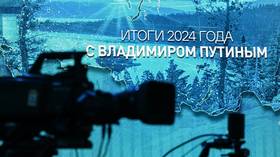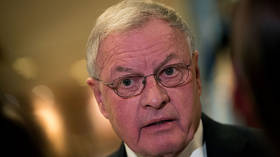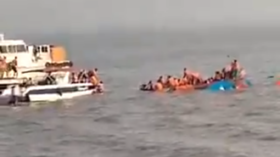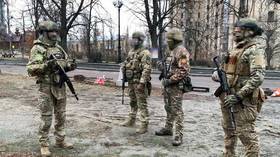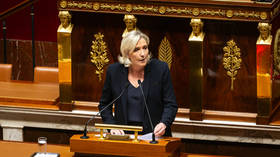ROAR: Georgia’s border with South Ossetia, Abkhazia “stable, but dangerous”

Moscow and the European Union have noted serious progress in the area of security in the Transcaucasus region, but analysts do not rule out new armed activities.
Russia and the EU have acknowledged the normalization on Georgia’s border with South Ossetia after the August 2008 conflict there, Russia’s Deputy Foreign Minister Grigory Karasin told Itar-Tass. “Over the past two years we can see serious progress in the area of ensuring stability and security in this region,” “Heads of the EU observers’ mission in Georgia also share this opinion,” he noted.
“No border incidents resulting in the loss of life were reported in the period from April 2009 to June 2010,” the diplomat said. But in early June, “regrettably, two persons – a customs officer and a local administration official – were killed near the border in Abkhazia’s Ghali district,” he added.
Now the tasks of creating the prerequisites for the economic self-sufficiency of these young republics are coming to the forefront in the activities of the Abkhazian and South Ossetian leadership, Karasin noted.
South Ossetia is facing more problems, such as rebuilding new residential housing, utility networks, the construction of educational and medical facilities, recycling of waste and building a modern motor transport system. Abkhazia also needs to modernize its transport infrastructure, rebuild the energy system and recreational facilities.
As Russia helps the two republics restore their economies, it also stresses that “it is high time Georgia's leaders start building normal good-neighborly relations with Abkhazia and South Ossetia.” In this regard, Karasin criticized Tbilisi’s strategy toward Tskhinval and Sukhum.
Tbilisi’s strategists have drawn up a plan to develop normal relations with these republics, he said. But, on the other hand, “the Georgian leaders continue their frenzied criticism of ‘separatists’,” he noted.
Georgian society “is being deliberately forced into an idea of reintegration of sovereign Abkhazia and South Ossetia into a ‘single’ Georgian state,” Karasin said, adding that this position “leads to a dead end.”
On the international arena, Georgia’s delegations insist on various drafts aimed at preserving at least superficial territorial integrity of Georgia within its former borders,” he noted. However, Russia hopes that more states will recognize the independence of the two republics. Moscow also insists that the international community should refrain from selling weaponry to Georgia.
One should not expect “positive changes” from Georgia at the moment, believes Anatoly Nagovitsyn, first deputy chief of the Collective Security Treaty Organization’s Joint Staff. At the same time, “the Georgian leadership came to the conclusion about the impossibility of conducting a military operation against South Ossetia,” he said in Tskhinval on August 5.
Tbilisi cannot forcefully restore its control over the territories, Nagovitsyn said, but added that “preparatory work is being done nevertheless.” The Georgian leadership at the same time fears “the Russian aggression,” he noted, speaking during the round table meeting devoted to the events of August 2008.
The negotiating process between all the sides involved should be more realistic, otherwise a new wave of violence may start in the region, believes Oksana Antonenko, the Program Director for Russia and Eurasia of the British International Institute for Strategic Studies.
“We are witnessing changes in the region… but it does not mean that the conflict has been resolved,” she said during a video conference with Russian and British analysts organized by RIA Novosti on August 4. “On the contrary, now the situation is even less stable,” she stressed.
Politically, the situation looks “unsolvable,” the analyst noted. The problem is that security has not been guaranteed in the region, “despite Russia’s efforts,” she said. Before the August 2008 events, all the sides involved in the conflict were even closer to the process of political settlement,” she noted.
The analyst described the Geneva talks on regional security as something “impalpable.” And the absence of relations between Russia and Georgia “has split the South Caucasus,” she said. “We will have this situation for years and decades to come,” she said.
“The relations of South Ossetia and Abkhazia are already considered in the context of the North Caucasus rather than South Caucasus,” the analyst noted. “If Russia does not mend ties with Georgia – as well as Turkey with Armenia – it will be difficult to speak about the possibility of any regional projects,” she noted.
President Dmitry Medvedev said on August 5 that Russian-Georgian relations cannot be restored under Georgia’s present leader Mikhail Saakashvili. “The leadership of Georgia and president Saakashvili is responsible for what has happened, including the destruction of political relations,” Itar-Tass quoted Medvedev as saying. But “centuries-long Russian-Georgian relations” may be restored in full when another leader will take the helm in Tbilisi, the Russian president stressed.
Medvedev added that Russia did the right thing in August 2008 when it fought Georgia and recognized the republics of South Ossetia and Abkhazia. “Revisiting the events that took place two years ago, I would like to say that I consider all the decisions made at the time to be absolutely warranted and justified,” he noted. Russia had come to the South Ossetian and Abkhazian peoples’ rescue “when their sheer identity was under threat,” the president said.
“Almost all Western leaders have admitted in private discussions that Georgia invaded South Ossetia in August 2008 and that Russia's response to Tbilisi's attack was lawful,” Medvedev said, Interfax reported. “Almost all those I have spoken to privately admit both the fact of aggression and the lawfulness of our response,” he noted. “Another thing is that some of our partners cannot announce such assessments publicly for various reasons.”
According to a recent poll, conducted in July in 45 Russian regions by the Levada Analytical Center, 46% of respondents said Abkhazia and South Ossetia should remain independent states. Only 5% of those polled think South Ossetia should be part of Georgia, and 4% think the same about Abkhazia.
The poll was conducted among 1600 respondents. Less than a third of them (30% for South Ossetia and 31% for Abkhazia) think the two republics should associate with Russia. The same number of respondents warns that Russia “should think well if it is necessary to incorporate the republics.”
Meanwhile, Abkhazia is not going to negotiate its status with the European Union or the US, head of the Abkhaz delegation at the Geneva discussions Vyacheslav Chirikba told Interfax on August 4. He also said his republic “will never reintegrate into Georgia.”
Chirikba, who is also Abkhaz presidential advisor on international issues, commented on speculations in the media that the EU and the US may be working with “third-rate figures” in order to normalize the republics’ relations with Tbilisi.
“Abkhazia will not renounce its independence under any circumstances,” Chirikba said. “We are not going to hold negotiations on establishing associated relations with Georgia,” he noted. The principal goal of any negotiations with Tbilisi is to sign an agreement on the non-use of force, he added.
Sergey Borisov,
Russian Opinion and Analysis Review, RT


